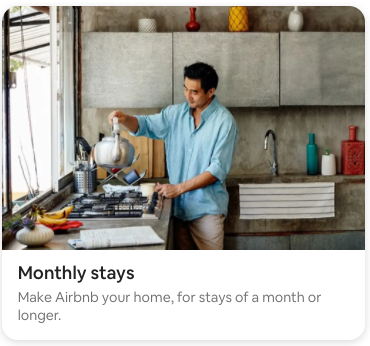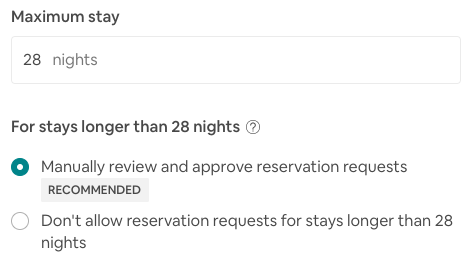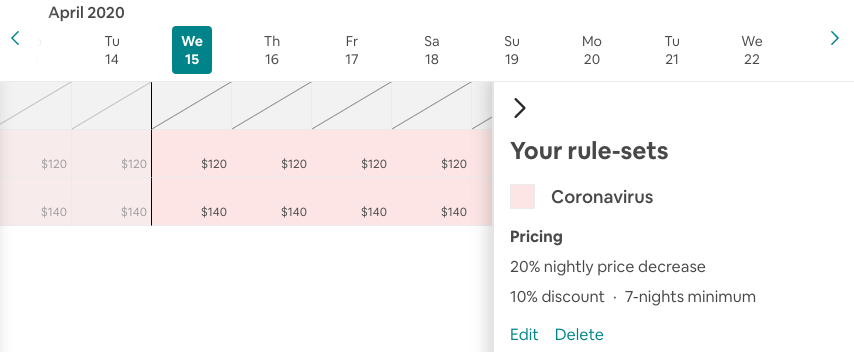If you’re an Airbnb Host that has been negatively affected by the Coronavirus, news flash: you are not special. The entire travel industry has been devastated. How quickly individual hosts are able to recover will depend on two main factors:
- How quickly they spot emerging opportunities that arise from these challenges
- How quickly they act on them
Airbnb went from planning their 2020 IPO to borrowing 2 Billion Dollars in cash to help them through the pandemic. With no clear end to the pandemic in sight, the company is expected to reveal a pivot focusing on long-term rather than short-term rentals.
Airbnb Pivots to Long-Term Rentals

It’s no surprise that Airbnb will soon begin focusing on long-term rentals: they’re following the lead of hosts who are doing everything they can to prevent from defaulting on their mortgages and violating their leases by way of non-payment.
This exodus of hosts are seeking refuge in long-term rentals, currently offered on platforms such as Rightmove, Zoopla, and Furnished Finder. Airbnb knows it’s difficult to win back the loyalty of hosts once they’ve left the platform so they’re taking immediate measures to push into the long-term rental space.
This isn’t speculation- it’s exactly what an Airbnb spokesperson told The Telegraph, “Before Airbnb existed, short-term rentals were found on a patchwork of local websites. Airbnb changed the short-term rental market and now the longer-term stays market is ripe for a makeover.”
Airbnb’s biggest fear is that hosts will become insolvent, sell their properties, and buyers will be unwilling to pursue the Short-Term rental model. They need hosts to succeed and they need hosts to succeed through long-term rentals- smart hosts will jump onboard the long-term wave and ride it all the way through this pandemic if not beyond.
Airbnb Monthly Stays
The bottom line is that Airbnb’s website has already started giving preferential treatment to hosts who offer long-term stays. They’ll be featured on the homepage, they’ll appear higher in searches, and they’ll have a better chance of getting booked.
Airbnb is calling it “Monthly Stays” (28-days and above) and beta testing the feature directly at the top of its homepage.
PHOTO HERE OF LISTINGS
Even without Airbnb’s interjection, rumors suggest the average Airbnb stay has gone from 4 days to 14 days. To maximize their chances of getting booked, hosts need to do everything possible to accommodate this influx of long-term searches and in the process get more eyeballs on their listings.
7 Tips to Attract Long-Term Stays
Follow this list of tips to quickly prepare your property for Airbnb Monthly stays.
Update Maximum Stay Length to 28+
This is something you need to do right now. If you categorically deny stays of 28+ days then you’re missing out on the fastest growing segment of Airbnb growth.
You can find this option in:
Manage Properties > Property Name > Availability > Trip Length

It’s important to note that even with Instant Book turned on you don’t have to instantly accept these longer monthly stays. You can set a threshold at which point an “Instant Book” will become a “Booking Request”.
Add Length-of-stay Discounts
If you want to attract the attention of long-term guests make sure you add a length of stay discount. You can add separate weekly, bi-weekly, and monthly discounts.
If you’re already discounting your property’s price so much that length-of-stay discounts will be TOO Much of a discount, you need to adjust. There are several reasons for this:
- Sporadic Short-Term bookings will prevent you from offering long-term bookings because your calendar will be blocked. Increase the price for Short-Term guests so you can better accommodate Long-Term guests.
- Long-Term guests are expecting “length of stay” discounts and often often message hosts inquiring if they can have an additional discount (because of how long they’re staying and how few people are traveling). If you’re already clearly offering a length of stay discount you can point this out more easily.
Coronavirus Rule Sets
DO NOT lower your base prices across the board or you’ll likely get bookings for next year’s peak season at huge discounts. Instead, use “Rule Sets” to create discounts that you can apply to specific calendar dates and update them as the COVID-19 pandemic plays out.

The approach of combining Length-Of-Stay discounts with a Coronavirus Rule Set illustrates to guests that your price accounts for both current travel conditions and their length of stay. Being able to communicate this clearly and effectively to guests will not only make your life easier but it will also help them understand your pricing which in turn will make them more comfortable to book.
Change your Title, Description, and Overview
Long-term guests are looking for something much different than short-term guests so adjust your narrative to speak to the long-term guest. Consider what long-term guests may enjoy in your property and use that as your focal point.
Listings that once highlighted the bustling neighborhood in a tourist area may now want to market it as a Cozy Escape for example.
Make sure you copy and paste your current title, description, and overview into a document so you can recover it when things return to normal. But for now you’ll want to review your listing to make sure it jives with the current travel market demands.
Double Check Amenities
Guests that are staying for longer will be more interested in your amenities so make sure you’ve got every last one checked off if you have it. Every little bit counts and you never know what someone considers a “must have” for them.
Not long ago visitors would come into town and hardly use your home aside from sleeping- they’d be attending events, going out to restaurants, and hardly touch the TV or the cooktop. With everybody stuck indoors it will become much more apparent how well equipped (or unequipped) your property is.
If you’re not prepared for guests that need kitchen essentials and other helpful household products it’s time to go shopping and get your property ready.
Don’t use a Flexible Cancellation Policy
Airbnb is urging hosts to use a “Flexible Cancellation Policy” to make guests more comfortable with booking your property during this time of travel uncertainty. It’s something they’ve always done but they’re pushing it even harder right now. If you’re hoping to book long-term stays this is a bad idea.
There are plenty of people who will be traveling regardless of the current travel situation and these are the people you’d rather attract. There may be a lesser volume but they’re also less likely to cancel.
Would you rather have a weekend stay in the middle of May that decides to cancel for free at the last minute? Or keep your calendar open so someone making a hospital visit can potentially book for 2 weeks? That’s up to you but I know my answer.
You want to find guests that will be driving rather than flying. You want guests that are coming for a hospital visit rather than for a concert. You want to discourage guests with flimsy plans so that the confident travelers, who understand the risks but want to book anyway, can fill your calendar.
Consider a Temporary Cancellation Policy
Airbnb is now offering a “Temporary Cancellation Policy” which will apply to new reservations that start April 1st or after for stays that end before June 1st. This will allow you to offer flexible cancellation for the uncertain few months ahead but stick to your moderate or strict policy thereafter.
The cancellation strategy you choose will depend on the area in which you live, how it is effected by Coronavirus, and what type of guests you want to attract. Just understand that your cancellation policy speaks to guests differently depending on their trip type. Make sure you’re delivering the right message with your policy.
Guest Requirements
Having a semi-crappy guest for a few days is not fun but it’s only a few days, right? But having a crappy guest for a month at a time is like hell!
You should probably take this time to require a Government-issued Photo ID and positive reviews from other hosts before accepting Instant Bookings from long-term guests. This will (hopefully) prevent having a nightmare guest for a long period of time. Do this now and thank us later!
Host COVID-19 responders
There is a huge misconception in the host community that Airbnb’s push to host COVID-19 First Responders comes with the requirement that you house them for free. This is absolutely not the case.
You can visit your Booking Settings tab right now and opt-in to allowing bookings from COVID-19 responders. You don’t need to offer any discounts (although you can), but you most adhere to a stricter cleaning regimen and provide several buffer days before/after their stay along with a few other requirements.
If you’re desperately looking to fill your property this might be an option for you. If you’re concerned about how this may affect your own health or the health of your cleaning time, pass this option up.
What are you doing to attract long-term stays?
Let us know in the comments!
